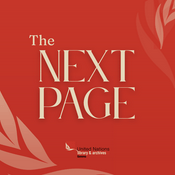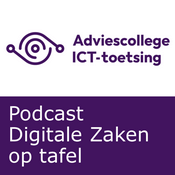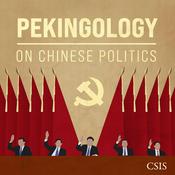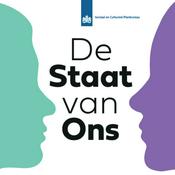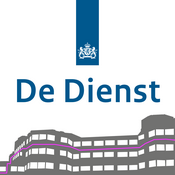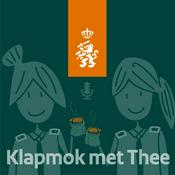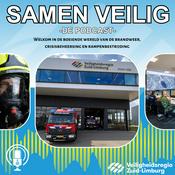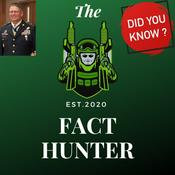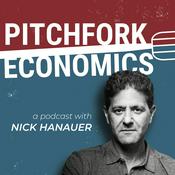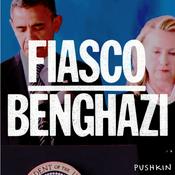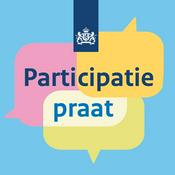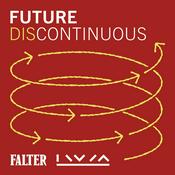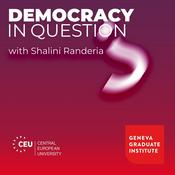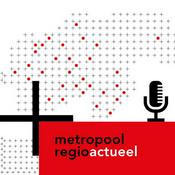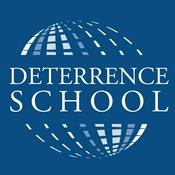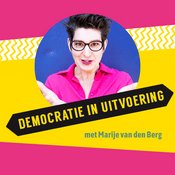174 afleveringen
- This is AI x Multilateralism, a playlist of conversations at the Commons, our space at the UN Library & Archives Geneva for sharing knowledge on multilateralism. In this series, we’re joined by experts who help us unpack the many ideas and issues at the nexus of AI and international cooperation.
In this episode we ask: can AI help us better predict, respond to, and recover from crises? We’re joined by Dr. Martin Waehlisch, Associate Professor of Transformative Technologies, Innovation and Global Affairs at the University of Birmingham. He’s also part of the Research Team of the Crisis Computing Project, a global community of scholars and practitioners who are driven to put computation to better use.
He shares:
what drives his teaching today on transformative technologies, and why he prefers the term “computational global affairs” to “international affairs” in today’s world
what exactly crisis computing means, and the kinds of crises he hopes that AI can help us to address, from complex climate prediction to public participation in decision-making
the potential of crisis computing at the local, regional and multilateral level, and his thoughts on how crisis computing can be addressed as part of the UN’s Global Dialogue on AI and the Independent International Scientific Panel on AI, both established by the UN General Assembly in 2025, and
what is still missing in the global debate when it comes to how we use AI individually and collectively.
Resources mentioned:
The Crisis Computing Project: https://crisiscomputing.org/
The Peace and Security Data Hub : https://psdata.un.org/
The Complex Risk Analytics Fund (CRAF’d): https://crafd.io/ and the Humanitarian Data Exchange: https://data.humdata.org/
Production:
Guest: Dr. Martin Waehlisch
Host, production and editing: Natalie Alexander Julien
Podcast Music credits:
Sequence: https://uppbeat.io/track/img/sequence
Music from Uppbeat (free for Creators!): https://uppbeat.io/t/img/sequence
License code: 6ZFT9GJWASPTQZL0
Recorded & produced at the Commons, United Nations Library & Archives Geneva
#AI #Multilateralism #CrisisComputing #CrisisResponse - In this episode we speak with Jean-Claude Burgelman about what open science means, why it accelerates innovation, and why we need it now.
Jean-Claude Burgelman discusses practical benefits for businesses and NGOs, barriers like paywalled publishing and academic incentives, and the urgent need to make publicly funded data usable.
Jean-Claude argues for multilateral infrastructure—a global open science cloud—and a new social contract for science, drawing on insights from this year's Frontiers Science House at Davos.
The episode closes with a call to rethink institutions and governance so open science can drive faster, fairer solutions to global challenges.
Resources: Ask a Librarian!
Frontiers Planet Prize: https://www.frontiersplanetprize.org/
Where to listen to this episode
Apple podcasts: https://podcasts.apple.com/us/podcast/the-next-page/id1469021154
Spotify: https://open.spotify.com/show/10fp8ROoVdve0el88KyFLy
YouTube: https://youtu.be/QBWMVpmW3pI
Content
Guest: Jean-Claude Burgelman
Hosts: Amy Smith and Wouter Schallier
Production and editing: UN Library & Archives Geneva
Recorded & produced at the United Nations Library & Archives Geneva AIxMultilateralism: Public AI - The New Multilateralism? with Jacob Taylor & Joshua Tan
26-1-2026 | 35 Min.This is AI x Multilateralism, a mini-series on The Next Page, where experts help us unpack the many ideas at the nexus of AI and international cooperation.
Today, the majority of AI development and deployment is controlled by a small number of powerful firms. If this path continues, the next generation of digital infrastructure underpinning our societies will be privately owned and unaccountable to the public interest.
Is there another way, one where where AI serves the common good? In this episode, Jacob Taylor (Fellow at the Brookings Institution’s Center for Sustainable Development and a 2025 Public AI Fellow) and Joshua Tan (Co-Founder and Research Director at Metagov) make the case for Public AI: shared, open AI infrastructure (much like highways, electricity grids, and public broadcasting), that is publicly responsible and harnessed to solve collective problems.
Drawing on their article Public AI is the New Multilateralism and Metagov's Public AI White Paper, they argue that building public AI infrastructure can become a new form of multilateralism, where states, academia and civil society co‑create accessible, accountable AI systems that can be shared and re-purposed to meet a range of local, regional and global needs. They share real‑world examples of Public AI already emerging, explain why middle powers have the strongest incentives to lead Public AI, and outline an “Airbus for AI” model to close capability gaps, reduce the world's dependency on a few private platforms, and solve cross‑border problems.
Resources mentioned:
The Public AI Inference Utility - publicai.co
Public AI - https://publicai.network/
Production:
Guests: Jacob Taylor and Joshua Tan
Host, production and editing: Natalie Alexander Julien
Recorded & produced at the Commons, United Nations Library & Archives Geneva
Podcast Music credits:
Sequence: https://uppbeat.io/track/img/sequence
Music from Uppbeat (free for Creators!): https://uppbeat.io/t/img/sequence
License code: 6ZFT9GJWASPTQZL0
#AI #Multilateralism #PublicAI #AIInfrastructure- Our final episode of the year invites listeners into the life and legacy of U Thant, the longest‑serving Secretary‑General of the United Nations and a quiet architect of peace during some of the most dangerous moments of the Cold War.
Drawing on the perspective of historian Thant Myint‑U, his grandson, the conversation revisits
U Thant’s role in crises such as the Cuban Missile Crisis and the Congo, showing how his calm, principled diplomacy helped steer the world away from catastrophe.
Grounded in Buddhist ethics and a deep belief in multilateral cooperation, U Thant’s leadership connected decolonization, social justice, and environmental concern long before these agendas were widely recognized on the global stage. Through archival stories and family memories, the episode explores how his example can inform efforts today to organize peace and renew trust in international institutions, as we reimagine the UN’s potential in a fractured world.
Resources: Ask a Librarian!
Myint-U, T. (2025). Peacemaker: U Thant and the Forgotten Quest for a Just World. W. W. Norton & Company.
https://www.thantmyintu.com/peacemaker
Where to listen to this episode
Apple podcasts: https://podcasts.apple.com/us/podcast/the-next-page/id1469021154
Spotify: https://open.spotify.com/show/10fp8ROoVdve0el88KyFLy
YouTube: https://youtu.be/UJRXUC80BSc
Content
Guest: Dr. Thant Myint-U
Host, production and editing: Amy Smith, UN Library & Archives Geneva
Recorded & produced at the United Nations Library & Archives Geneva League of Minds: How Interwar Intellectual Cooperation Shaped Cultural and Political Relations
12-12-2025 | 45 Min.On the launch of the latest publication in the UN Historical Series, published by the UN Library & Archives Geneva, this episode of The Next Page explores the history of intellectual cooperation around the League of Nations, tracing the creation of the International Committee in Geneva and the Paris-based International Institute for Intellectual Cooperation.
Guest speakers Dr. Martin Grandjean, University of Lausanne, and Professor Daniel Laqua, University of Northumbria, discuss the Institute’s ambitions, institutional rivalries with Geneva, questions on elitism, inclusivity and the nature of the project, and examples of initiatives—from textbook debates and student exchanges to heritage and scientific cooperation—that helped shape cultural diplomacy and paved the way for later multilateral efforts like UNESCO.
Resources. Ask an Archivist! Ask a Librarian!
Grandjean, M. and Laqua D. (eds). Intellectual Cooperation at the League of Nations: Shaping Cultural and Political Relations. UN Historical Series.
Where to listen to this episode
Apple podcasts: https://podcasts.apple.com/us/podcast/the-next-page/id1469021154
Spotify: https://open.spotify.com/show/10fp8ROoVdve0el88KyFLy
YouTube: https://youtu.be/554QVVqJaew
Content
Guests: Dr. Martin Grandjean (University of Lausanne) and Professor Daniel Laqua (University of Northumbria)
Host, production and editing: Amy Smith, UN Library & Archives Geneva
Recorded & produced at the United Nations Library & Archives Geneva
Meer Overheid podcasts
Trending Overheid -podcasts
Over The Next Page
Are you curious about the power of international cooperation? And how it affects our future? Tune in to the #NextPagePod, the podcast of the UN Library & Archives Geneva, designed to advance the conversation on multilateralism.
Podcast websiteLuister naar The Next Page, Podcast #ONDERMIJNING en vele andere podcasts van over de hele wereld met de radio.net-app

Ontvang de gratis radio.net app
- Zenders en podcasts om te bookmarken
- Streamen via Wi-Fi of Bluetooth
- Ondersteunt Carplay & Android Auto
- Veel andere app-functies
Ontvang de gratis radio.net app
- Zenders en podcasts om te bookmarken
- Streamen via Wi-Fi of Bluetooth
- Ondersteunt Carplay & Android Auto
- Veel andere app-functies


The Next Page
Scan de code,
download de app,
luisteren.
download de app,
luisteren.
